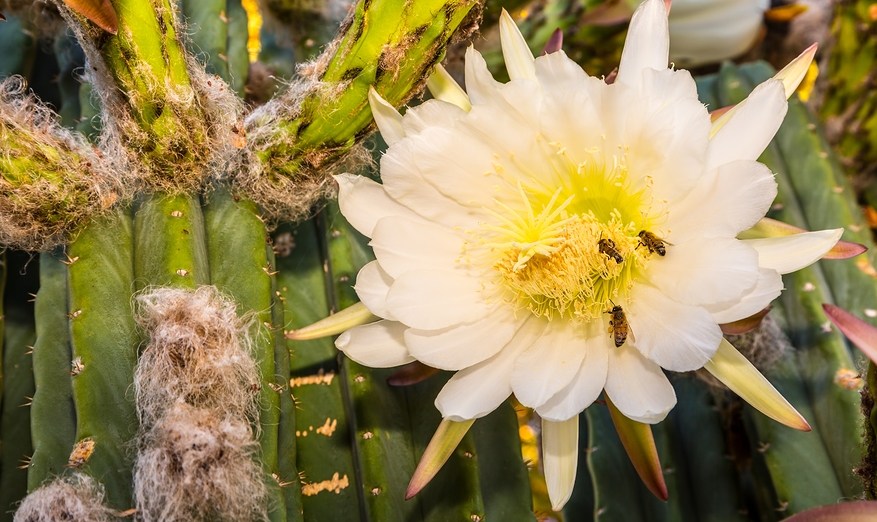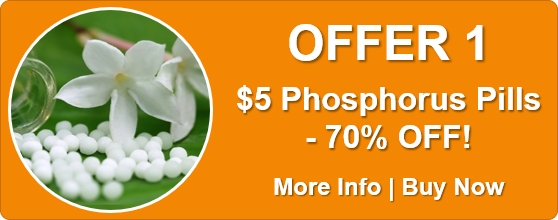Know Your Remedies: Cactus Grandiflorus (Cact.)
 Common Name: Night-blooming cereus.
Common Name: Night-blooming cereus.
General Information
A significant remedy for severe constricting, contracting or congestive pains, especially in the heart, bladder, rectum, vagina, or uterus. These pains are triggered or worsened by the slightest touch. This remedy may also be indicated when a trio of complaints are present – indigestion, haemorrhoids and heart problems. There may tingling and crawling down the left arm and the hand may swell. The person may also have regular dreams of falling. Symptoms often worsen at 10-11pm.
Mental-emotional Problems
- Sadness with heart disease.
Head Problems
- Facial pains with throbbing in the temples – especially the right temple.
Chest Problems
- Severe constricting pains in chest or diaphragm – “as if grabbed by an iron fist”.
- May feel as if caged in wire or by a tight metal band.
- The heart may feel as if it is bound in an iron band or as though it is being clutched and released.
Respiratory Problems
- Constrictive asthma with heart disease.
Urinary Problems
- Renal colic with bloody or clotted urine.
Female and Menstrual Problems
- Vaginismus – constriction of the vagina making intercourse difficult or impossible.
- Severe constricting menstrual pain with the passing of clots.
Where do I find it?
Cactus Grandifloras (Cact.) is available from our online store as a single, and in the following Complex (combination remedy): Cramp – Menstrual.
Home Treatment Guidelines
Acute, Self-Limiting Conditions
Conditions like colds or minor injuries, which are short-term and typically improve on their own, can be managed at home with homeopathy. However, in emergencies or if symptoms worsen, contact your healthcare provider.
Chronic Conditions
These home treatment instructions do not apply for ongoing issues, whether mentioned above or not, like persistent allergies or chronic pain. You should consult a qualified homeopath for a personalized treatment plan to achieve the best results with homeopathy for chronic conditions.
How to Take the Remedy for Acute Conditions
- Take one pill or five drops of the remedy. The frequency depends on symptom severity. As examples:
- For life-threatening symptoms, take every 1 minute and seek emergency help immediately.
- For mild symptoms, take every 4 hours.
- Stop taking the remedy once you feel better. Resume if symptoms return.
- If no improvement after four doses, choose a different remedy or consult a professional homeopath.
- For more details on dosing, refer to: How Often to Dose with a 30C Homeopathic remedy.
- For information on the different potencies, read: Guidelines on which potency to use
Additional Notes From Past Masters
Homeopathy is a 200-year-old system of medicine. Early homeopaths recorded detailed notes on how remedies worked, including initial tests, remedy relationships, and their experiences. These writings were shared to improve homeopathic practice and now offer fascinating insights into past uses of homeopathy. Here’s an example, edited and modernised for clarity, from Leaders In Homoeopathic Therapeutics (1898) by E. B. NASH M.D.:
Leaders In Homoeopathic Therapeutics by E. B. NASH M.D.
Cactus Grandiflorus (Cact.)
Constriction of the heart, as if an iron band prevented its normal movement; < lying on left side.
Constriction, general; of heart, chest, bladder, rectum, uterus, vagina, etc.
Hćmorrhages in connection with heart troubles; nose, lungs, stomach, rectum, bladder.
Palpitation; day or night; worse when walking and lying on left side, approach of menses.
Fear of death; believes the disease incurable.
* * * * *
Cactus grandiflorus is another great heart remedy, and its grand characteristic is not at all like Digitalis. It is a “sensation of constriction of the heart, as if an iron band prevented its normal movement.” (Iodine has a sensation as if heart was squeezed together. Lilium tigrin., as if grasped and released alternately. Lachesis, constriction on awaking, throws off covering; Arsenicum alb., constriction or oppression on walking).
This sensation of constriction is not confined to the heart, but is found in the chest, bladder, rectum, uterus, vagina; in short, it seems to be a general characteristic for this remedy, as does that of fullness for Ćsculus hippocastanum.
The heart troubles of Cactus are quite apt to be caused by inflammatory rheumatism, where it is one of our best remedies.
Among the symptoms found, more or less connected with heart troubles, for which Cactus is indicated, are: Heavy pain on vertex like a weight (Glonoine; Lachesis at climacteric), a frequent symptom in persons suffering with heart troubles, cerebral congestion, profuse epistaxis, haematemesis, haemorrhages from anus, haematuria or haemoptysis. In any haemorrhages, seeming to be in sympathy with heart trouble, think of Cactus.
Now, besides the leading characteristic of Cactus on the heart, we have other chest and heart symptoms which are very valuable. Oppression of chest or difficult breathing, as if the chest could not be expanded, with this sense of band-like constriction.
“Periodical attacks of suffocation, with fainting, cold perspiration on face and loss of pulse.”
“Fluttering and palpitation of heart, increased when walking or lying on left side.”
“Great irregularity of heart’s action, intermittent pulse, valvular murmurs in organic diseases of heart.”
“Palpitation < lying on left side (Nat. mur.).
Oedema of left hand, foot and leg.”
“Rheumatism of all joints, beginning in upper extremities.” (Ledum in lower.).
“Numbness of the left arm” (Aconite; aching, Rhus toxicod.).
“Cactus is a remedy of not very wide range; but of paramount importance in its sphere.”






